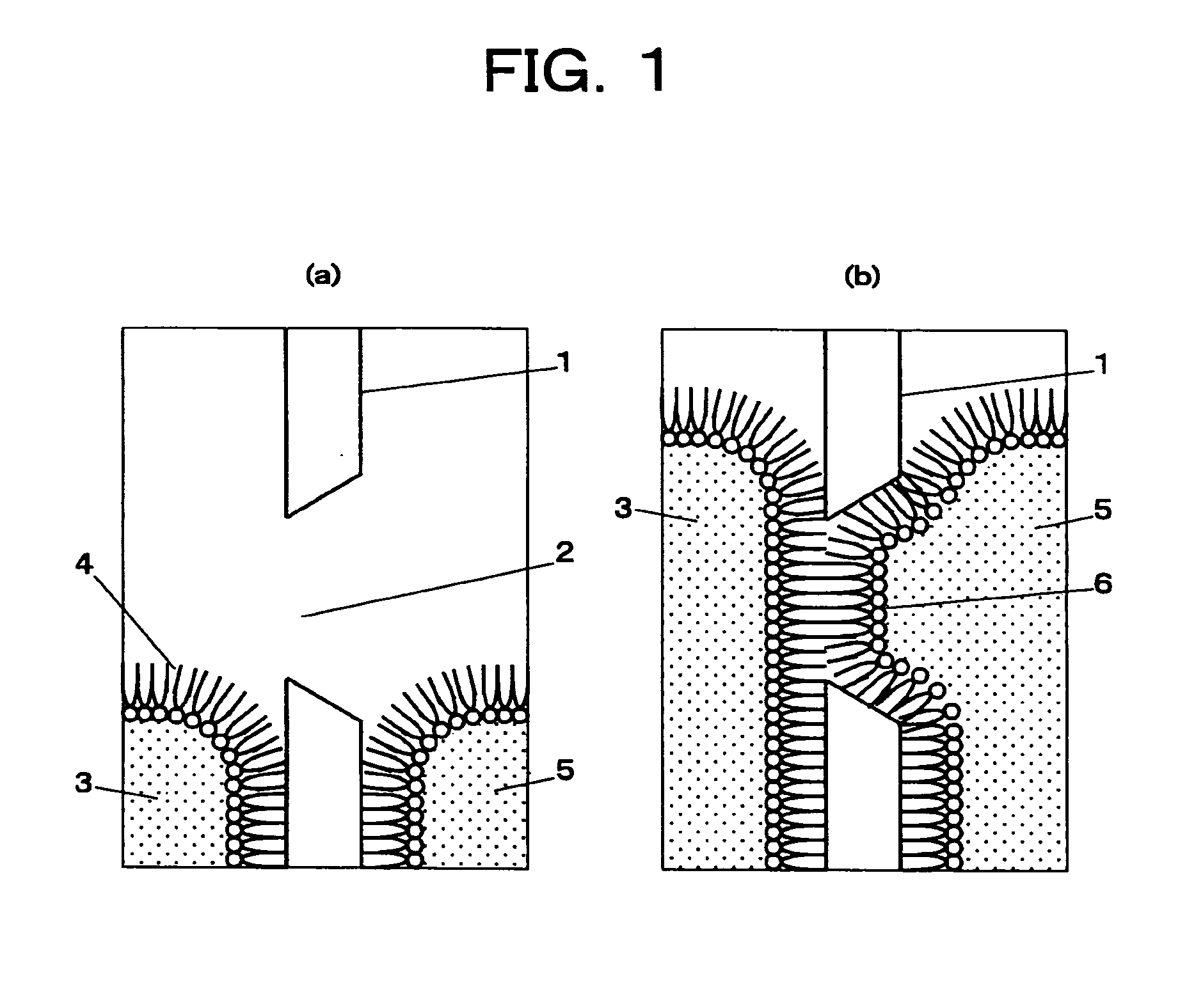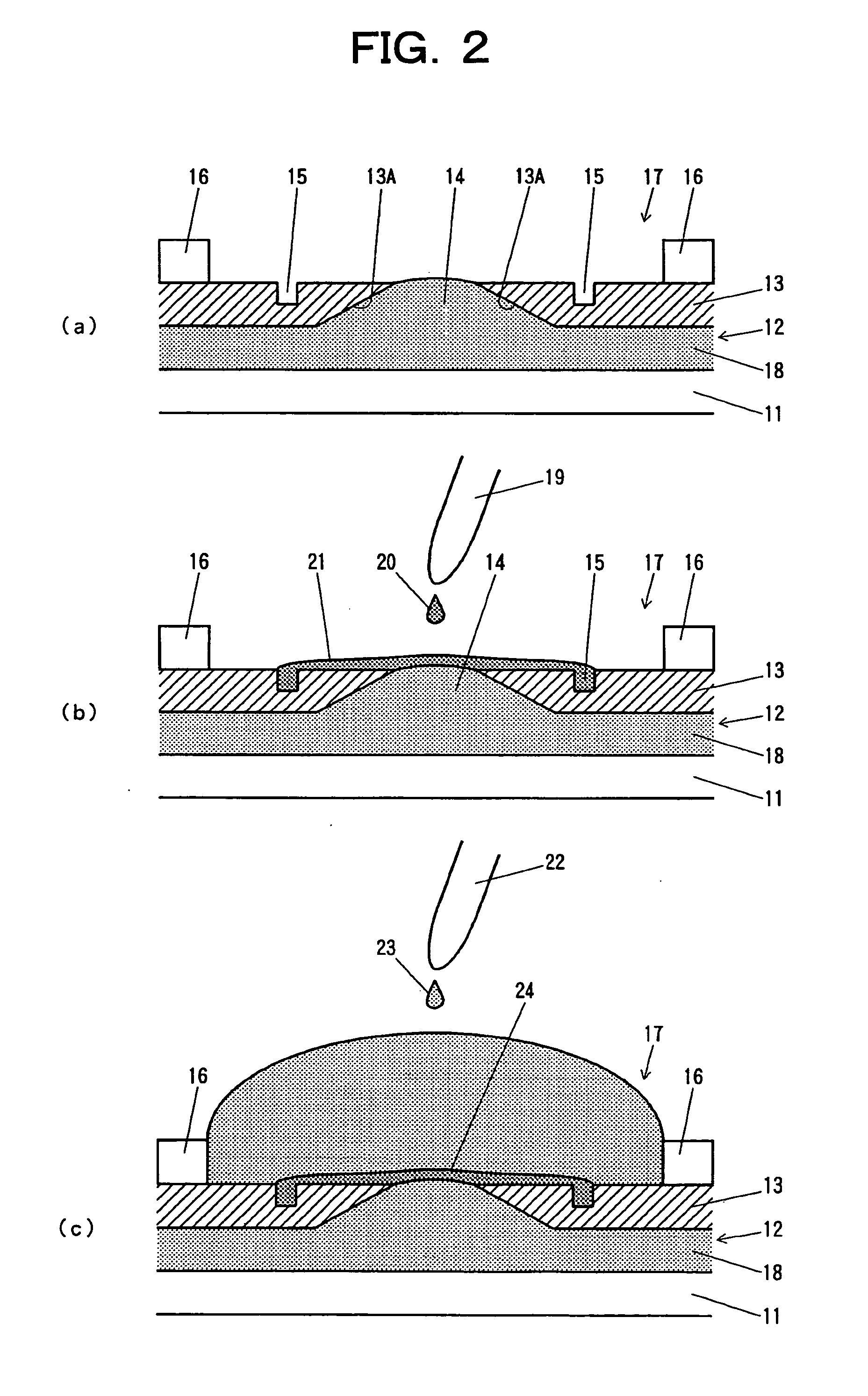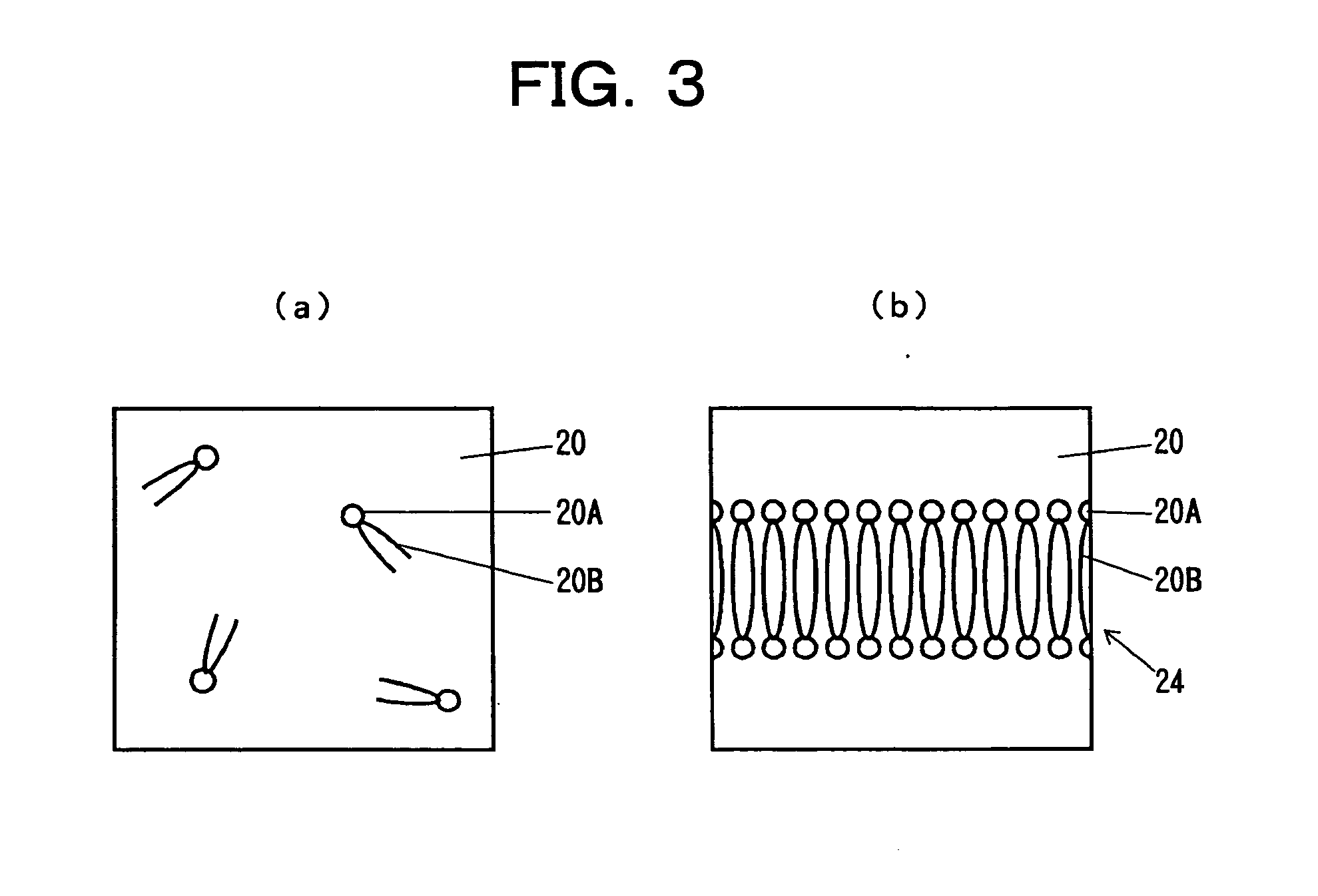Method of forming planar lipid double membrane for membrane protein analysis and apparatus therefor
- Summary
- Abstract
- Description
- Claims
- Application Information
AI Technical Summary
Benefits of technology
Problems solved by technology
Method used
Image
Examples
first embodiment
[0044]FIG. 2 is a schematic diagram of a device for forming a planar lipid-bilayer membrane according to a first embodiment of the present invention. FIG. 3 is a schematic diagram showing a lipid solution.
[0045] In FIG. 2, a reference numeral 11 denotes a glass substrate, a reference numeral 12 denotes a microchannel, a reference numeral 13 denotes a partition wall, a reference numeral 14 denotes an aperture (opening) provided to the partition wall 13, a reference numeral 15 denotes a liquid trap provided on the partition wall 13, a reference numeral 17 denotes a chamber defined by a well 16, a reference numeral 18 denotes a buffer solution which fills the microchannel 12 and the aperture (opening) 14, a reference numeral 19 denotes a microinjection device (microinjector), a reference numeral 20 denotes a lipid solution applied as a droplet from the microinjection device 19, a reference numeral 21 denotes a layer of the lipid solution, a reference numeral 22 denotes a microinjectio...
second embodiment
[0053]FIG. 4 is a schematic diagram of a device for forming a planar lipid-bilayer membrane according to a second embodiment of the present invention.
[0054] In a second embodiment, in addition to the components in the first embodiment, a first thin-film electrode 25 is provided on the glass substrate 11 of the microchannel 12 and a second thin-film electrode 26 is provided on the partition wall 13 within the chamber 17 defined by the well 16. Since the thin-film electrodes 25 and 26 are independently provided in the chamber 17 defined by the well 16, the membrane potential and current can be measured.
[0055] In order to incorporate a membrane protein to be analyzed into the planar lipid-bilayer membrane 24 formed at the interface of the buffer solution 18, a spherical vesicle (liposome) of the same lipid bilayer is used.
[0056] As shown in FIG. 5, a liposome 31 containing Alamethicin 32 which is a channel protein is prepared. Droplets of the liposome is mixed in the buffer solution...
third embodiment
[0057]FIG. 6 is a schematic diagram of a device for forming a planar lipid-bilayer membrane according to a third embodiment of the present invention.
[0058] In this embodiment, the device is provided with a channel 12A connecting to the liquid trap 15. Therefore, it is possible to control the thickness of the layer of the lipid solution remaining on the interface of the buffer solution 18. In other words, when a thick lipid solution layer 21 is formed by the lipid solution 20 remaining on the interface of the buffer solution 18, the thickness of the lipid solution layer 21 can be decreased by sucking the excess of the lipid solution 20 through the channel 12A connecting to the liquid trap 15. Reversely, when a thin lipid solution layer 21 is formed by the lipid solution 20 remaining on the interface of the buffer solution 18, the thickness of the lipid solution layer 21 can be increased by pushing the lipid solution 20 back through the channel 12A connecting to the liquid trap 15.
PUM
 Login to View More
Login to View More Abstract
Description
Claims
Application Information
 Login to View More
Login to View More - R&D
- Intellectual Property
- Life Sciences
- Materials
- Tech Scout
- Unparalleled Data Quality
- Higher Quality Content
- 60% Fewer Hallucinations
Browse by: Latest US Patents, China's latest patents, Technical Efficacy Thesaurus, Application Domain, Technology Topic, Popular Technical Reports.
© 2025 PatSnap. All rights reserved.Legal|Privacy policy|Modern Slavery Act Transparency Statement|Sitemap|About US| Contact US: help@patsnap.com



